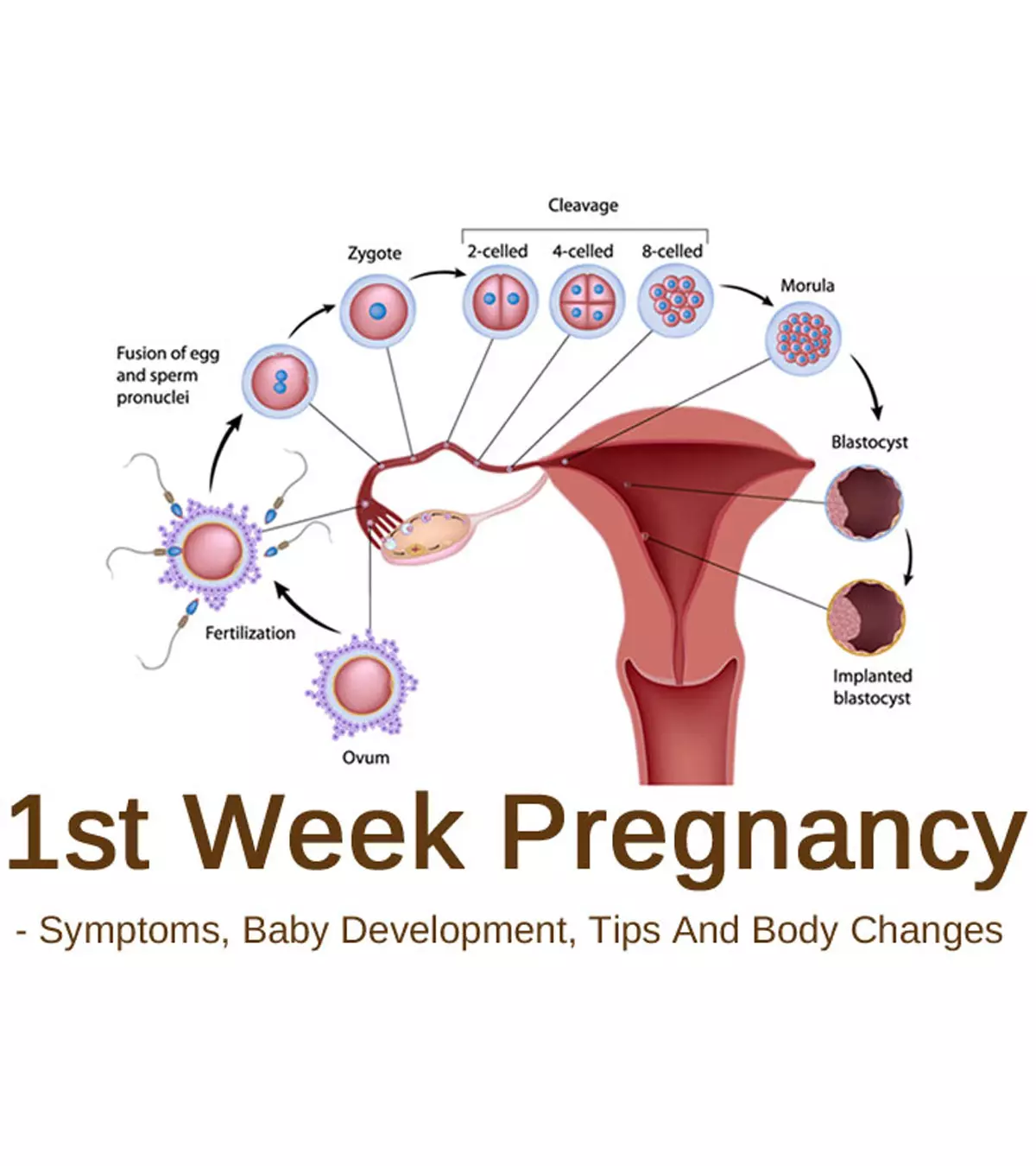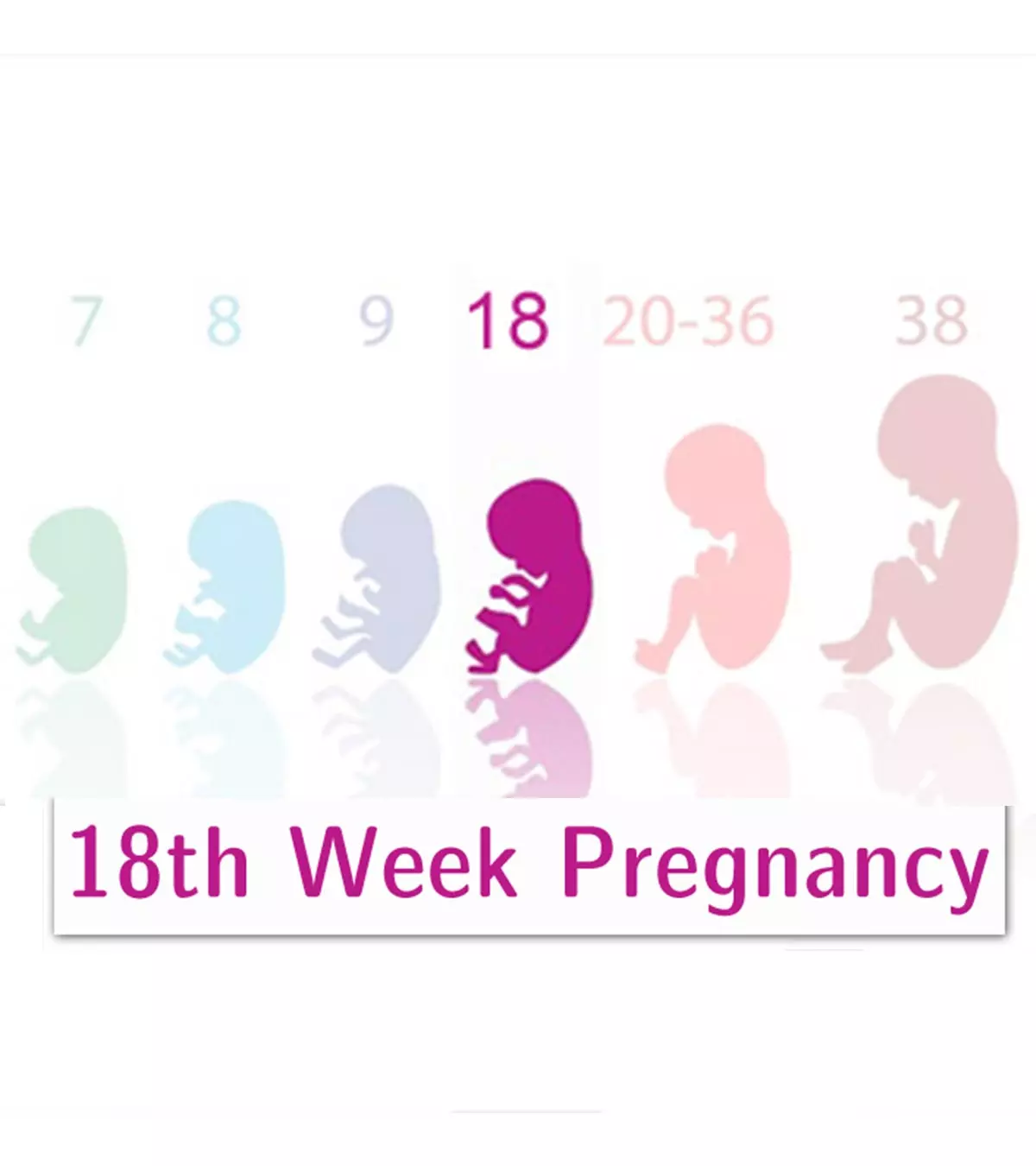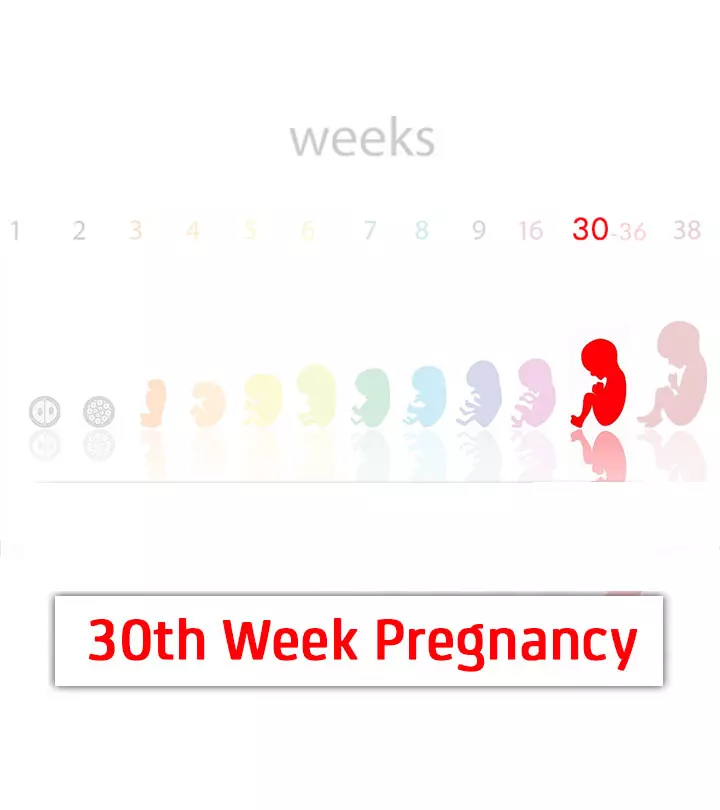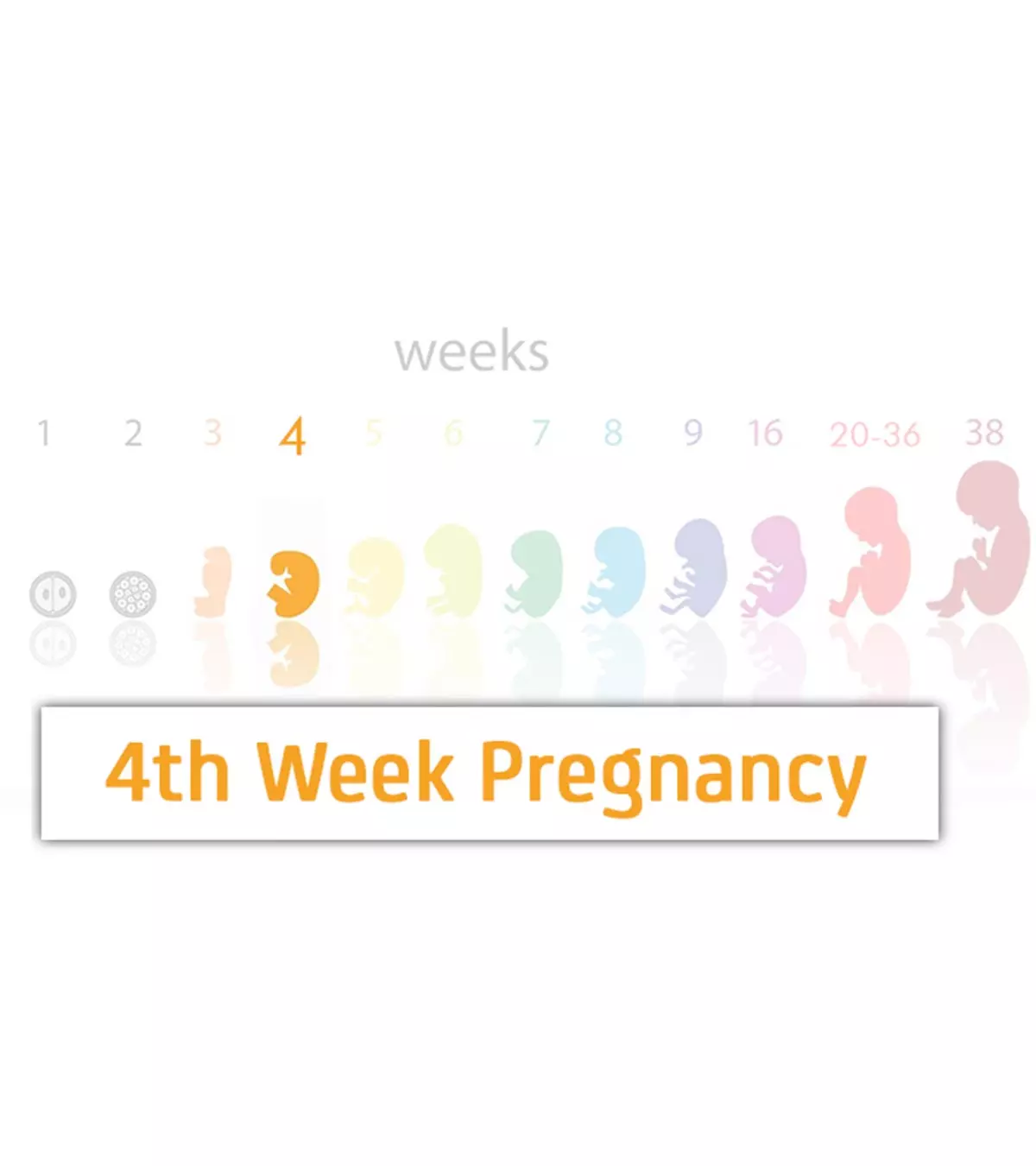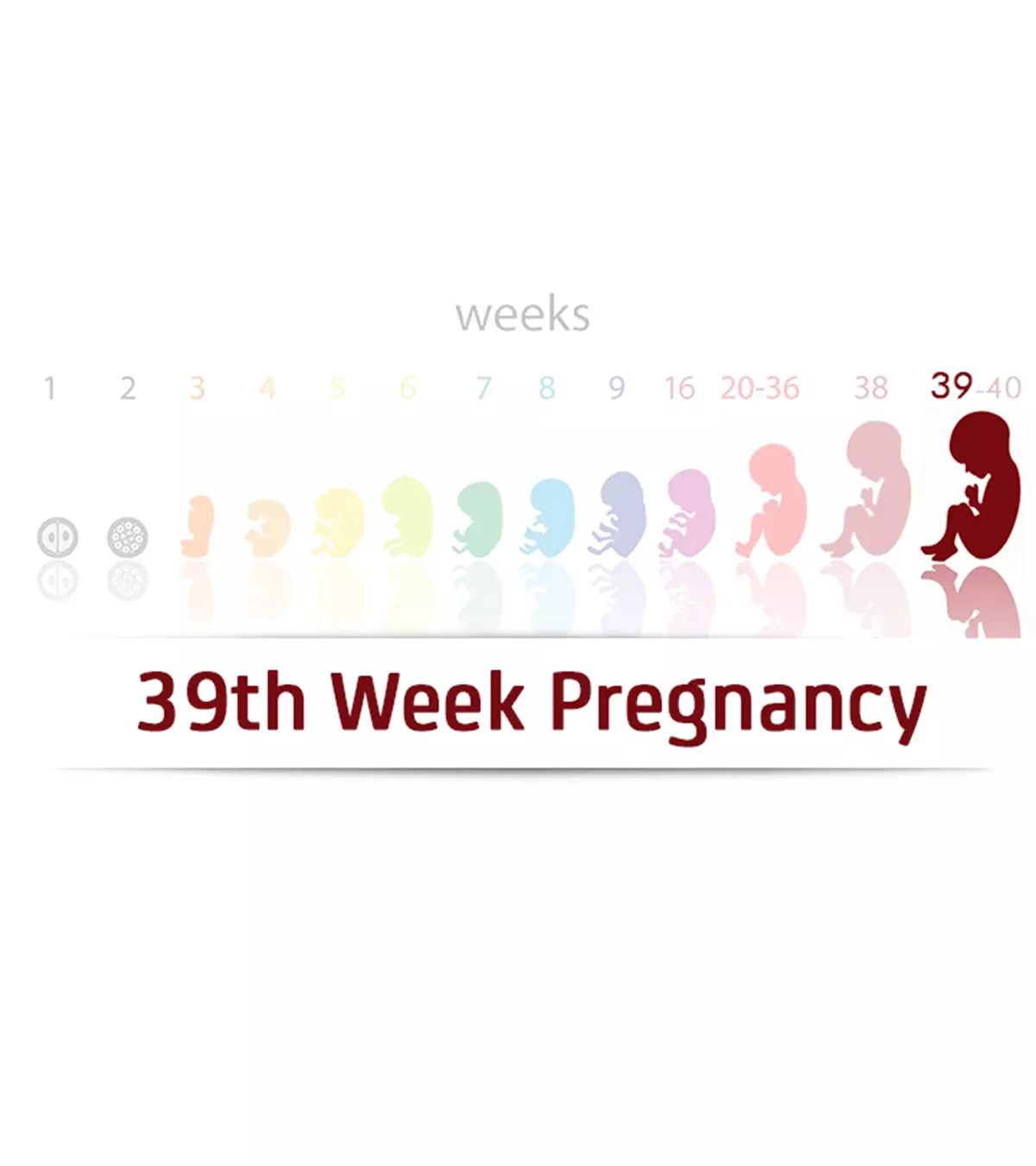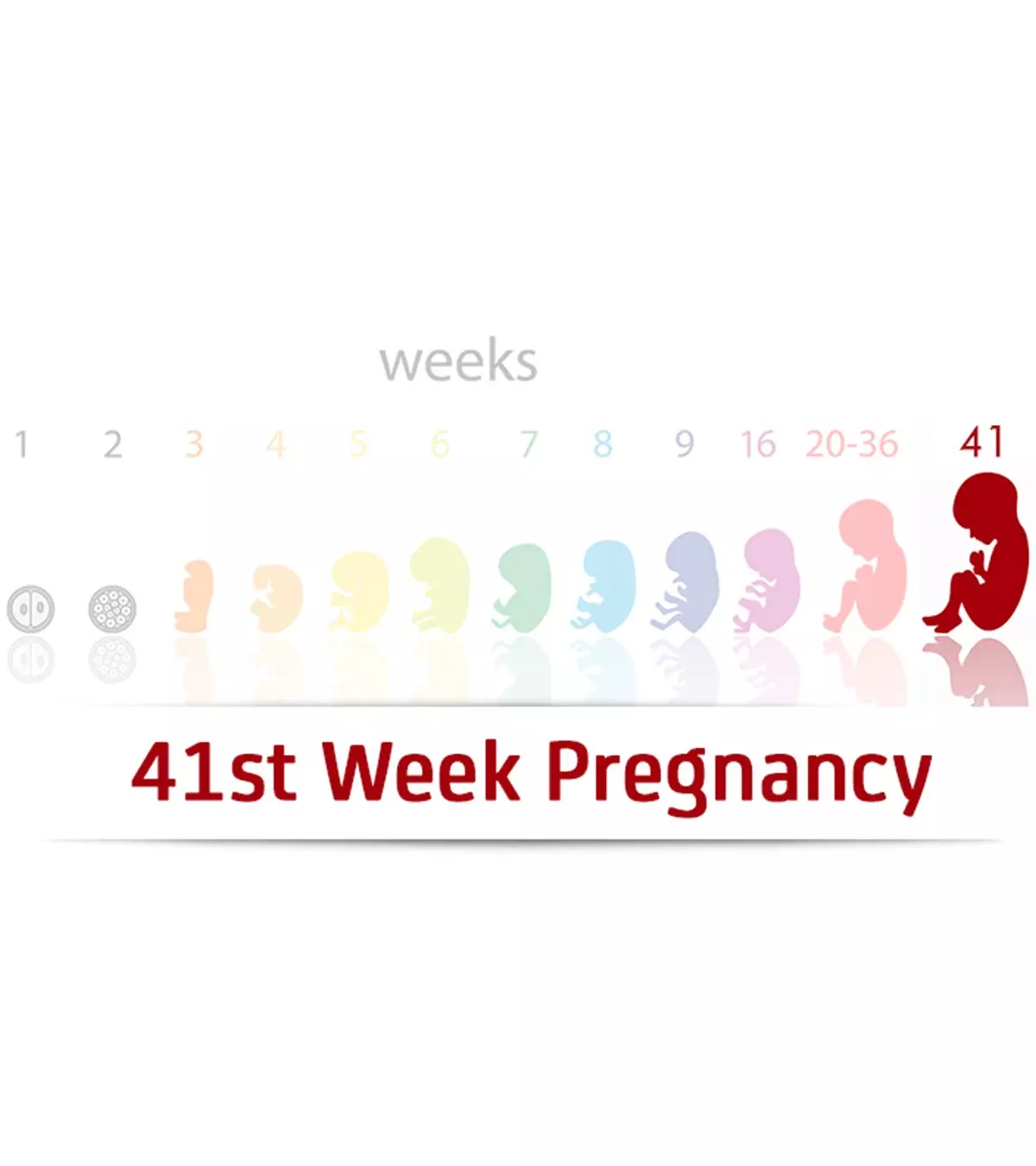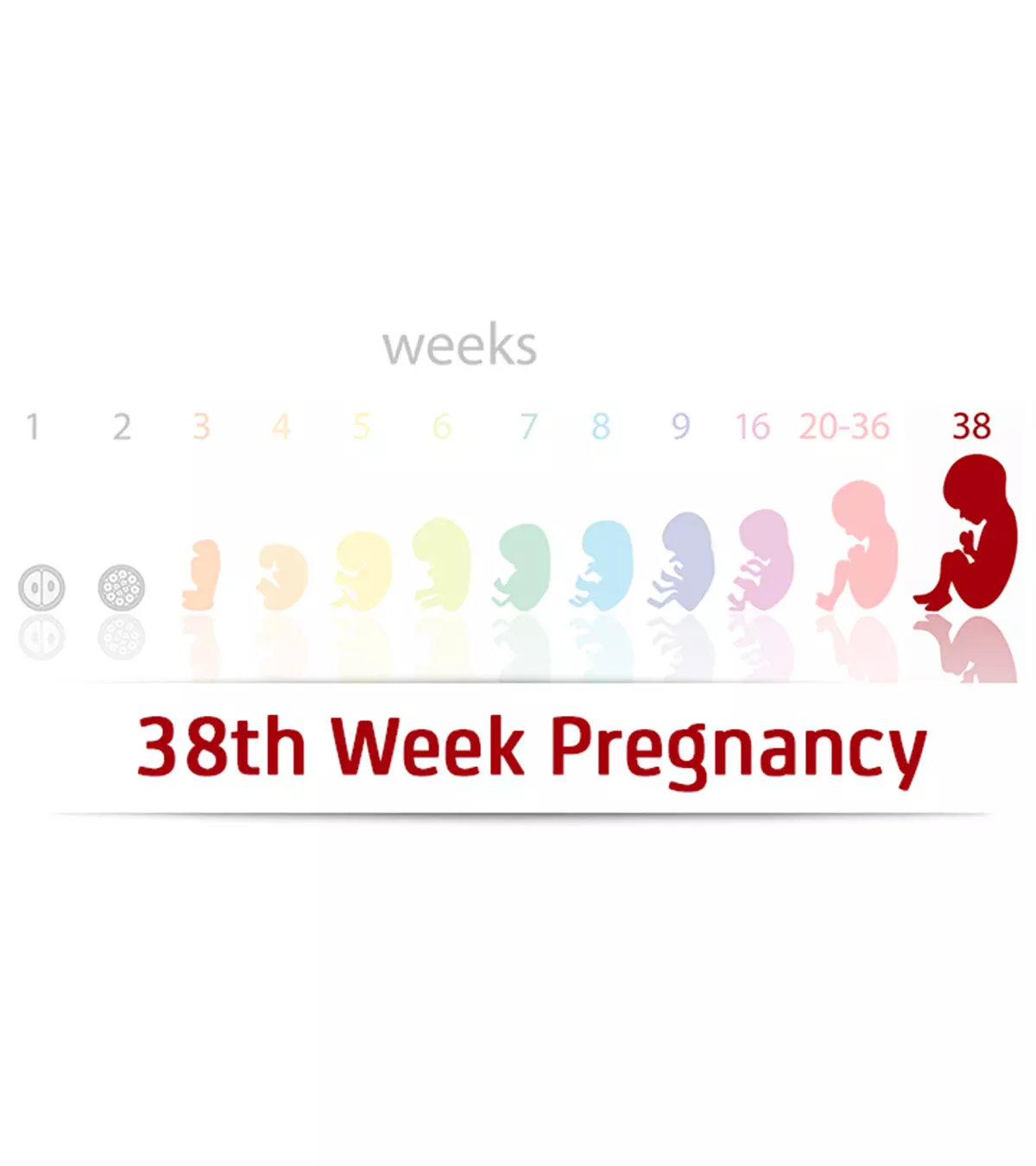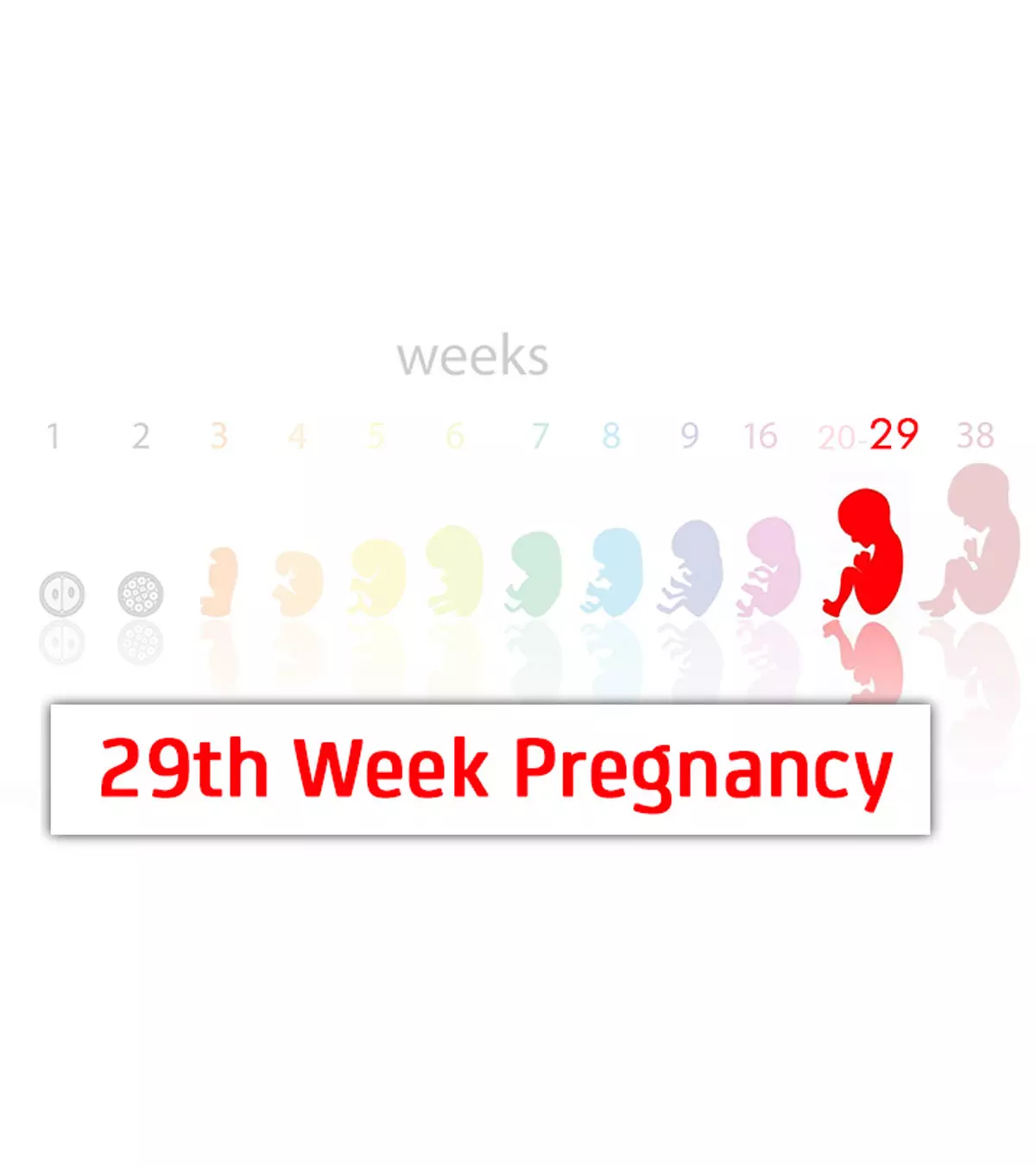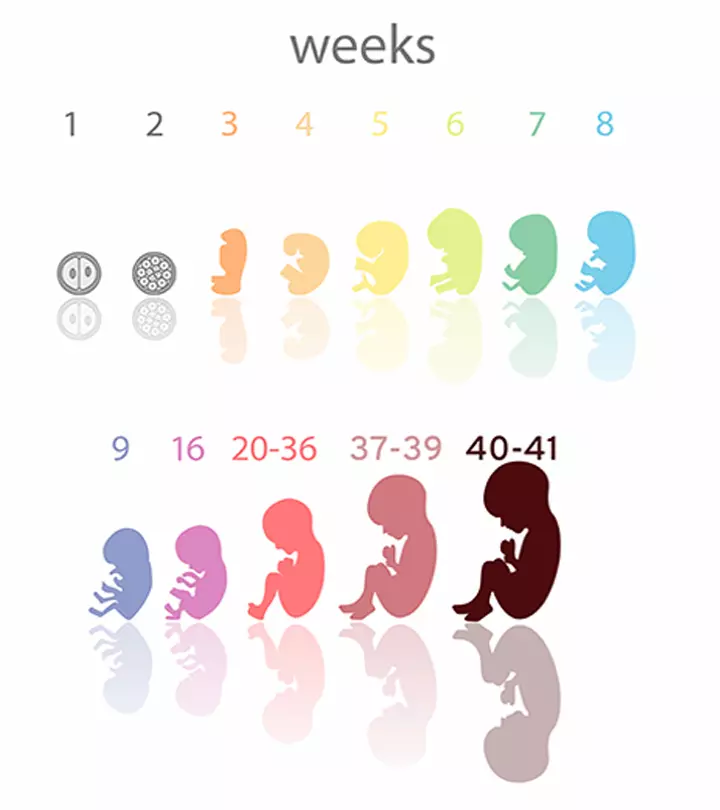
Image: MomJunction Design Team
The 10th month of pregnancy is calculated if the pregnancy progresses to 40 weeks or more. It is the end of the third trimester. The gestational period is 39 to 40 weeks and is generally calculated as nine months since some babies are born before 40 weeks (1).

A baby born in the 10th month is also considered a term baby, and post-term babies are those born at 41 weeks or more. There is no need for labor induction or C-section on the 10th month of pregnancy since you can wait a few more days to deliver on time.
As your due date gets closer, you may notice signs like stronger contractions, back pain, and the loss of the mucus plug. Recognizing these symptoms can help you get ready for labor and delivery. Read on to know more about the 10th month of pregnancy, how it is calculated, and details of this crucial month before your little one arrives.
Key Pointers
- It is normal to give birth in the 10th month and babies born between weeks 39 and 41 of pregnancy are considered full-term babies.
- Leading up to this, you can expect weight gain, water retention, headaches, exhaustion, uterine contractions, a burning sensation while urinating, and heavy vaginal discharge.
- As the baby grows, fat accumulates under their skin, their hair disappears, movement decreases, faster brain development, and they gain weight.
- It is recommended to stay hydrated, practice yoga and breathing exercises, and schedule regular doctor checkups to manage these symptoms.
The Incredible 10th Month of Pregnancy
The curtain raiser event is very close! Knowing about the different stages of pregnancy helps to be mentally prepared. Since this month is at the threshold of childbirth, here are a few details about each week in the 10th month of pregnancy (2) (3).
Week 37:

Image: Shutterstock
You may put on a little more weight than what you have increased in the past few weeks of your pregnancy. Your baby bump becomes more prominent and fluid accumulation may cause swelling in your feet, hands, and ankles.
- A small amount of fat starts accumulating under the baby’s skin. The hair that is covering your baby’s skin starts disappearing at this stage.
- There is a rapid development of your baby’s brain in the 37th week of pregnancy, which is around 6-7 pounds in weight (1).
- You may experience headaches and stomach aches. To overcome these problems, drink plenty of fluids, try a few yoga positions, start practicing them, and concentrate on your breathing.
Week 38:
Your baby has by now occupied your complete space inside and has got little space to move around.
- The weight of your baby is around 3 kg (2). As there is little space for it to grow now, he or she will not grow much but will put on some weight.
- You may be approaching your due date and may start feeling uterine contractions.

Image: Shutterstock
- If the contractions are lasting for one minute and occurring every 10 minutes or less, then you are all set for labor and delivery, the special journey of your life.
 Quick fact
Quick factWeek 39:
During this week you may experience a lot of increase in your weight. Also, your feet appear to look too swollen due to water retention
- You can also feel the weight of your baby. You may need a lot of rest at this time, simply because it is too exhausting to balance your baby.
- Fetal development is now complete and the baby will try to come out as early as possible as there is no space for it to move or grow.
- The weight of your baby is now around 6½ – 8 pounds and the height is around 48 cm long. Both height and weight may differ from baby to baby.
 Quick fact
Quick factWeek 40 And 41:

Image: Shutterstock
If you are due till the end, don’t worry momma! The big day for your baby and you aren’t too far. Moms sometimes start feeling a burning sensation while urinating and a slight fever, if so, talk to your doctor.
- Your baby is now 3 kgs to 3.5 kgs in weight and 50 cm in length.
- If you are feeling a burning sensation during peeing at this stage or if there is a heavy discharge from the vagina, then contact your doctor immediately.
Nearing labor may bring about symptoms such as stronger contractions, pressure in the pelvic area, and sometimes feelings of anxiety. It’s important to talk to your healthcare provider about your birth plan to set clear expectations and help manage what’s to come.
Frequently Asked Questions
1. Is it normal to give birth in ten months?
It is normal to give birth any time between 37 and 41 weeks (6). However, once you cross 40 weeks of gestation, your doctor will want to monitor you closely (7).
2. Which food is good for me in the last month of pregnancy?
Dairy products, vegetables (including green leafy vegetables), fruit, grains, and lean meats are all good during pregnancy. These foods provide essential nutrients such as vitamins and minerals, proteins, fats, and carbohydrates to keep you energetic (7).
3. How often should I see my healthcare provider during the 10th month of pregnancy?
During the 10th month of pregnancy, you should visit your doctor every week (8).
4. Is it normal to feel anxious or nervous during the 10th month of pregnancy?
Yes, feeling nervous as you approach your due date is normal and common. You may try breathing exercises, journaling, or talking to a friend to alleviate these feelings and boost your mood.
5. What are the possible complications that could arise during the 10th month of pregnancy?
The 10th month of pregnancy may present with certain complications, including increased labor duration, abnormalities in fetal heart rate, and increased risk of stillbirth. In addition, the baby’s increased size may reduce the likelihood of vaginal delivery, and the amniotic fluid surrounding the baby may reduce, leading to a limited supply of oxygen and nutrients (9).
The 10th month of pregnancy is the last lap of gestation. While your baby undergoes rapid brain development and the final phases of physical growth, fluid accumulation in extremities during the 37th week may cause your hands, feet, or ankles to swell. Ensure you are well hydrated and try yoga and other breathing techniques to help ease discomfort and childbirth. Frequent uterine contractions during the 38th week may indicate you will probably give birth around this time. On average, the baby can weigh about 3 to 4.5 kg (6 ¾ to 10 pounds) and measure 48.3 to 53.3 cm (19 and 21 inches) in length by the end of the 40th week (4). If you have a burning sensation when urinating or have a fever, consult your doctor.
Infographic: Key Points About The 10th Month Of Pregnancy
During the 10th month of pregnancy, the baby continues to grow and develop inside the womb. The following infographic provides an overview of what might occur in the mother and baby during weeks 40 and 41 of pregnancy. Also, check with your healthcare provider regularly and take good care of yourself. Illustration: Momjunction Design Team
Illustration: All You Need To Know About The 10th Month Of Pregnancy

Image: Stable Diffusion/MomJunction Design Team
The tenth month of pregnancy is a very crucial phase when the focus lies on delivery and the induction of Labour. Learn how to prepare for this important step in your pregnancy journey.
References
- What Is Full Term?
https://www.marchofdimes.org/find-support/topics/pregnancy/what-full-term - Pregnancy week-by-week.
https://www.pregnancybirthbaby.org.au/pregnancy-week-by-week - Pregnancy Week By Week.
https://www.marchofdimes.org/pregnancy-week-week - 40 Weeks Pregnant.
https://americanpregnancy.org/healthy-pregnancy/week-by-week/40-weeks-pregnant/ - What happens in the tenth month of pregnancy?
https://www.plannedparenthood.org/learn/pregnancy/pregnancy-month-by-month/what-happens-tenth-month-pregnancy#:~:text=Shortness%20of%20breath%2C%20heartburn%2C%20and,dilate%20%E2%80%94%20to%20prepare%20for%20delivery - Overdue babies.
https://www.betterhealth.vic.gov.au/health/servicesandsupport/overdue-babies - Baby due date.
https://www.betterhealth.vic.gov.au/health/healthyliving/baby-due-date - Prenatal care in your third trimester.
https://medlineplus.gov/ency/patientinstructions/000558.htm - When you pass your due date.
https://medlineplus.gov/ency/patientinstructions/000515.htm
Community Experiences
Join the conversation and become a part of our nurturing community! Share your stories, experiences, and insights to connect with fellow parents.
Read full bio of Dr. Neha Singh
Read full bio of Sakshi Mishra
Read full bio of Rebecca Malachi
Read full bio of Aneesha Amonz





